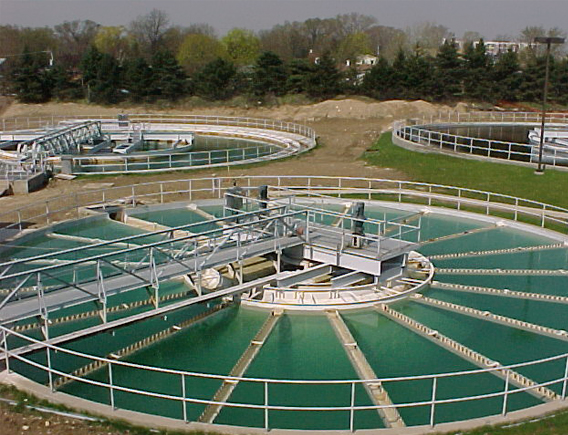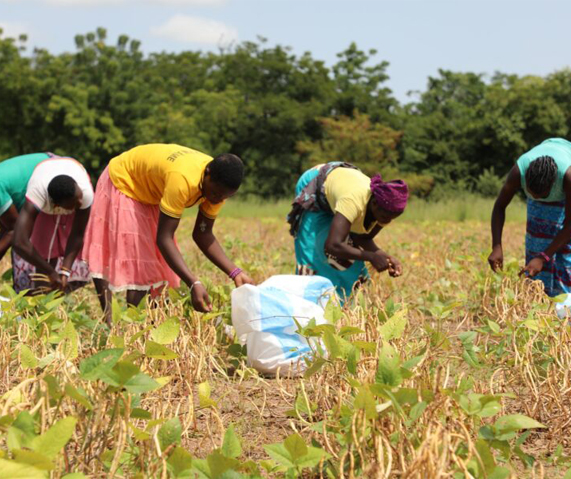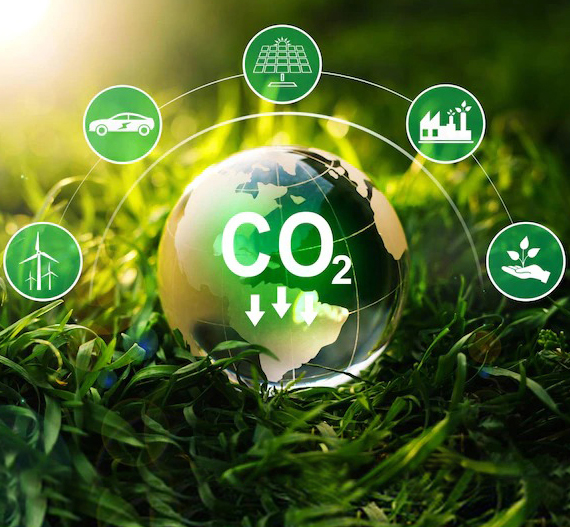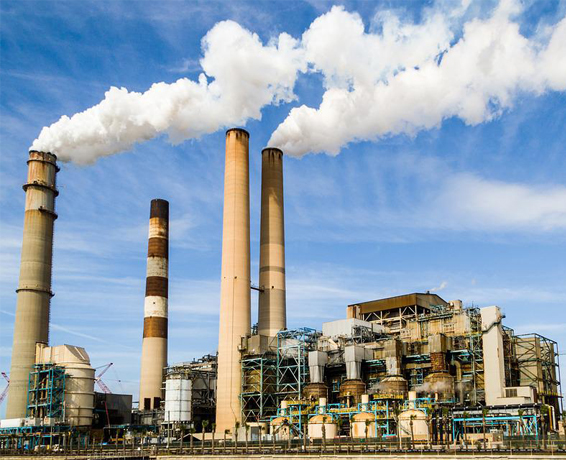Finance
Access to high level experts
ECA has highly qualified and experienced financial experts with strong expertise in development cooperation, banking and financial institutions, financial and economic analysis, project finance and financial modelling, corporate finance, accounting, among other financial disciplines.
Our experts (both in-house and external) have participated to a number of Technical Assistance programmes and framework contracts, which cover energy and climate change mitigation and adaptation.
Our experts have working track record and expertise in Africa, Asia, and Europe.


ECA provides a range of services thanks to a robust investors’ network…
- Financial expertise supply in Technical Assistance programmes financed by international donors and financial institutions.
- Identification and assessment of the feasibility of different business opportunities and investment options in the finance sector (e.g., Mergers and Acquisitions (M&A) of companies in Africa and the Middle East) – taking into consideration the local investment and business contexts – as well as provision of tailored advice to investors, clients and partners.
- Identification and structuring of business relations and partnerships with potential investors, as well as facilitating interaction between investors and ECA clients.
ECA has access to a large network of private and public sector investors from Africa, Europe, Asia and America, including institutional investors, banks, business angels, venture capital funds, among others.
…We know how to create value for investors.

Infrastructure
We identify and define business opportunities and facilitate the development of investment projects in cooperation with (and for) international partners (and clients) in the infrastructure sector encompassing not only energy and water but also transport, road and buildings. In this context, we provide strategic advice on investment projects based on our knowledge of the local busines environment, the risks and barriers pertaining to the political and economic situations as well as the existing institutional and regulatory frameworks.
We bring together international investors, local and international partners (including Engineering, Procurement, Construction (EPC) contractors). We also have access to high level experts that we provide to our clients in Technical Assistance programmes financed by international donors and financial institutions (including in road infrastructure).

Water
ECA intervenes in the water sector mainly through the provision of experts (local, regional and international) in Technical Assistance programmes financed by international donors and financial institutions (e.g., we have intervened as a consortium partner for the elaboration of the strategy for solar water pumping and adaptation to climate change of water resources’ utilization in Mauritania). ECA is also involved in the elaboration and conduct of sector-wide research and analysis to identify investment opportunities, as well as the preparation of technical, strategic and market studies – the objective being the provision of support to international companies, technology suppliers and investors willing or seeking to engage in water business development in Africa and the Middle East.
The main water sub-sectors of intervention are desalination, water pumping using renewable energy technologies and water supply for both drinking and agricultural purposes, sustainable water management and adaptation to climate change


We can combine both our internal experts (who are specialized in climate change, environment, energy, financial and economic analysis, strategic advice provision…) and external experts (who are specialists of the water sector) in order to provide tailored solutions to projects (whether Technical Assistance, market research or strategic studies). Our database of external experts in the water sector consists of hydrologists, hydrogeologists, and water infrastructure development specialists. We recourse to highly experienced people having previously occupied positions at Ministries in charge of agricultural development, national water supply companies, as well as from academia.
Sustainable water management is one of the most critical aspects of socio-economic development, in a context where climate change continues to significantly impact the availability of surface water resources (and in other cases underground water resources). Overall, through its interventions, ECA promotes the implementation of actions that aim at adapting the utilization of water resources to climate change and at implementing alternative solutions for water supply.
Agriculture
Sustainable agriculture is one of the most critical components of socio-economic development in most developing economies. As an example, in some African countries, between 50% and 70% of the population is employed (formally and informally) in the agricultural sector, whereas the share of agriculture to the Gross Domestic Product (GDP) can reach as much as 60% (e.g., the case of Sierra Leone in 2020).
ECA intervenes in the agricultural development sector mainly through the provision of experts (local, regional and international) in Technical Assistance programmes and Framework Contracts financed by international donors and financial institutions. Topics and sub-sectors covered include mainly the productive uses of energy in agriculture that is a development model being progressively developed/implemented in developing economies especially in Africa (e.g., the deployment of renewable mini-grids for the creation of economic activities for rural farmers). Similarly, ECA promotes the development and implementation of the Water-Energy-Food NEXUS, and contributes to integrated rural development, through donor-funded programmes. In addition, our interventions in the energy, water and climate change sectors are strongly interlinked with the agricultural sector development.

Also, ECA has also conducted studies, structured business partnerships and initiated projects that support agricultural development, for instance, the valorisation of agricultural waste for the production of compost and sale on the local market in Togo (at highly competitive prices as compared to imported fertilizers).
ECA has a large database of experts that are specialized in agriculture – covering several disciplines such as engineering, institutional frameworks, capacity building, financing, different business models combining both clean energy and agriculture, among others. Our experts in the agriculture sector are external to ECA and mainly from Africa (both North and Sub-Saharan). Our in-house expertise (specialized in climate change, environment, energy, financial and economic analysis…) can be combined to agriculture sector specialists in order to provide tailored solutions to our clients. For instance, our inhouse experts have worked on the development of climate change mitigation and adaptation portfolios of projects in Tunisia that cover solar water pumping and valorization of rainwater for irrigation purposes, in addition to the sustainable development of oases – in the framework of the European Union financed Clima-Med programme.
Climate change
A general context for our activities
Climate change effects are being observed around the globe through rising temperatures, more frequent droughts and floods, storms, among other factors. Particularly in developing economies, population suffers from severe impacts in a context of poor social and economic contexts (e.g., lack of rain reduces river flows and hydropower plants’ output; hence, power supply reliability). The Kyoto Protocol has set up the framework for developing and emerging countries to benefit from clean technology transfer through investment and financing carbon reduction projects by developed countries.
The latter, on the other hand, have seen the emergence and/or strengthening of carbon reduction related regulatory frameworks such as the introduction of carbon taxation and/or emissions’ quotas. Despite the opportunities provided by the Kyoto Protocol, Africa represents only 2% of the total number of Clean Development Mechanisms (CDM) projects registered under the United Nations Framework Convention on Climate Change (UNFCCC). The Paris Agreement has then provided another basis for the continuation of the carbon market but more on a “voluntary basis” and under different conditions.


A range of services and expertise in the carbon reduction business with strong presence in Africa and the Middle East
Since the years 2000, ECA has intervened in the development and implementation of climate change mitigation initiatives (covering energy, environment, industry, infrastructure, agriculture and other sectors of operation). Over the years, we have provided a wide range of services for the development and implementation of carbon reduction projects including:
- CDM project identification and portfolio definition with a specific focus on Africa (both North and Sub-Saharan regions),
- Financial analysis in a context of carbon financing,
- Identification of Certified Emission Reduction (CERs) units’ sellers,
- Creation and establishment of strategic partnerships and cooperation,
- Business structuring,
- Project development and management,
- Provision of strategic advice throughout the project development and implementation cycle to international parties, among others.
Since the expiration of the Kyoto Protocol and in the framework of the Paris Agreement, ECA continues its operations on voluntary markets.
We usually partner with local companies, international technology suppliers and consulting firms as well as international investors to facilitate and implement the whole business set-up. As an example, ECA has initiated, structured and facilitated the registration of the Akuedo landfill gas management project, as a CDM activity in the UNFCCC. It has also facilitated the creation of National Designated Authorities (NDAs) in Africa and the Middle East, among other activities with the purpose of attracting carbon finance investors.
On the other hand, ECA provides expertise in Technical Assistance programmes financed by international donors and financial institutions – covering both adaptation and mitigation (e.g., the European Union financed Clima-Med programme with the participation of one of our in-house experts). Furthermore, we provide advice to Government agencies and entities in Africa and the Middle East on climate related institutional frameworks and climate policies.
Our in-house and external experts have 5-40 years of comprehensive experience in climate related policies, regulations, finance and economics in both Green House Gas (GHG) mitigation and adaptation.
Environment
Environmental protection has become, over the past decades, at the core of business development, policies and regulations in many developed economies, and has translated into the continuous development and deployment of more environmentally friendly technologies. These are slowly being transferred to developing markets (especially Africa) whereas more and more countries start putting in place environmental standards and have set up dedicated legal and regulatory framework as well as procedures for environmental compliance for projects and businesses.
At ECA, we promote environmental protection in a context of sustainable development, through our various activities and services including in the energy, industry, climate change and infrastructure sectors.


Among ECA’s interventions is the provision of external expertise for the elaboration of different types of environmental impact assessment (EIA) documents for energy projects in the framework of Technical Assistance programmes (e.g., Sustainable Energy for All (SE4ALL) for West, Central, East and Southern Africa, financed by the European Union (EU)) as well as for energy infrastructure projects (e.g., in the framework of the construction of the Agadez hybrid power plant in Niger). Our in-house expertise has also been deployed in similar programmes where aspects such as environmental protection agencies and environmental requirements and compliance procedures have been assessed and defined (e.g., EU SE4ALL in Zambia for the evaluation of Independent Power Producers (IPP) licensing and the proposal of new frameworks).
We benefit from a large database of experts specialized in environmental and social impact assessments (in energy, water, transport, and other infrastructure sub-sectors), environmental regulations, environmental compliance procedures, as well as in dedicated institutional and regulatory frameworks’ development (e.g., Environment Code), among others. Our experts have between 5 and more than 30 years of experience and benefit from local, regional and international experience.
Industry
ECA works with its international and local partners (from Africa and the Middle East) to develop industrial projects in a sustainable manner – that promote the utilization of the latest energy efficiency standards and regulations and/or renewable energy technologies and that minimizes carbon footprints. Industrial activities supported by ECA can cover several economic sectors ranging from energy, technology, and even textile, among others, in a context of sustainable development.
A few examples of projects and activities that have been supported include, without limitation, the manufacturing and sale of clean energy (gas) cooking stoves for the handicraft sector in Tunisia; the sale/acquisition of industrial facilities in the textile/clothing sector in Tunisia; the installation, manufacturing and sale of wood briquettes in Ghana for export purposes in Europe; the transformation and valorization of agricultural waste into biomass for sale in the local market in Togo; etc.


ECA is also the parent company of ECA Services (“ECAS”), that has provided strategic advice, expertise and other support services to Sumitomo Corporation and Mitsubishi Hitatchi Power Systems (MHPS) for the construction of the 450 MW Rades combined cycle power plant in Tunisia. We have further developed and structured business cases and partnerships to support the expansion of an industrial ship manufacturing company in Tunisia for the Ivorian market.
In general, ECA intervenes through the provision of advice on investment decisions and project development to international companies (such as industrial enterprises and multinational firms, consulting companies, technology suppliers…) and investors; conducts market research and appraisal (e.g., for the deployment of specific technologies in a local industrial context or for the development of an industrial cluster); initiates, creates, launches and structures business opportunities, among others. ECA seeks to further diversify its portfolio of activities in the industry sector in Sub-Saharan Africa and the MENA region and has strong capacity to support the development of sustainable industrial projects through its large network of expert database and local partners.
Energy
Energy is the cornerstone of economic and social growth. Developing countries strive to meet energy demand needs for transport, electricity supply, and industrial development. In Africa, most countries’ Governments continue to have recourse to thermal energy (oil and gas) with the objectives to reduce the energy supply deficit and increase access to energy usually associated with a relatively high share of unelectrified population. However, national policies, institutional and regulatory frameworks are increasingly directed towards the establishment of a more sustainable energy sector.
ECA International intervenes in several energy subsectors including power, renewable energy, energy efficiency, in addition to oil and gas in order to develop investment opportunities while addressing challenges and creating value for stakeholders.

Electricity
The power sector in many developing countries, specifically in Sub-Saharan African economies, faces several challenges, among which are the following:
- Economies have low access rates especially in rural areas (which may vary from 5% to as much as 30% or 40% depending on the country’s institutional, policy and regulatory frameworks’ robustness and applicability as well as the level of investment).
- Most of the scenarii for rural electrification involve grid extension as the main option, which is usually not economically viable in remote locations, leading to the growing utilization of off-grid, decentralized solutions.
- Utility companies are in many countries insolvent or in financial difficulties with high indebtedness level due to commercial losses resulting from technical challenges, poor power infrastructure performance, fraud, among other issues.
- Grid infrastructure is characterized by high technical losses (which can reach as high as 20% in some countries) and power plants do not operate at full capacity. Some countries also face ageing infrastructure and require considerable investment for rehabilitation and reinforcement.
- The institutional, policy, legal and regulatory frameworks are in many countries not sufficiently developed, do not facilitate private investment and may also constitute a barrier to international public financing support.
ECA intervenes in the framework of Technical Assistance programmes financed by international donors as well as development and multilateral financial institutions, through its internal and external expertise, to address power sector challenges in developing economies.
It further contributes to sustainable development through the initiation of clean electricity supply project opportunities, the structuring of business partnerships, the provision of technical and strategic support to project development and implementation.

Renewable Energy
Significant progress has been achieved over the past two decades with regards to renewable energy technological development and cost reduction. This trend is likely to continue with cost falling by around 25-60% over the period 2015-2025 This has allowed the continued decrease of power generation cost or the Levelized Cost of Energy (LCOE) especially for solar, as well as the mounting utilization of renewable technologies for on-grid and off-grid power generation, and for water pumping and supply for irrigation purposes, in developing economies.
In Africa, a large number, if not most of the countries, have a significant solar potential, whereas other economies benefit from important hydro resources, and wind (at a lesser extent). However, biomass remains the largest primary energy used (reaching 80% of total supply in some countries), most often unsustainably, for cooking and lighting with direct effects on the environment (such as deforestation). Informal markets for woodfuel continue to thrive, making it challenging to change the societal behavior towards using more costly technologies without adequate incentives. Geothermal, on the other hand, is still at exploratory or pilot development stage in a few countries where potential exists.


In the Middle East (Qatar, Saudi Arabia and the United Arab Emirates, etc.), the largest RE resource available remains solar with an estimated potential of 2,000-3,200 kWh/m2/year. Solar Photovoltaïc (PV) and Concentrated Solar Power (CSP) opportunities are immense and ECA strives to initiate and develop business opportunities in the sector and bring upon investors and technology suppliers to support the deployment solar technologies (e.g., Japanese solar PV cleaning robots).
More broadly, ECA intervenes through the creation of tailored business and project solutions to address environmental degradation as well as socio-economic development through renewable technologies’ deployment (e.g., biomass valorization projects through landfill gas flaring for power generation or for compost production to reduce the impact of limited waste management). ECA conducts market studies to support investment decisions, advises national and local Government institutions to adopt well-designed development programmes and advises international partners to implement adapted business models, among other activities in the renewable energy sector.
Energy Efficiency
More and more African countries’ governments put in place energy efficiency or energy conservation strategies, policies and action plans (e.g., National Action Plan for Energy Efficiency (2015-2020/2030) (NAPEE) for ECOWAS individual countries) with a number of objectives and goals that are most often highly difficult or challenging to achieve.
Progress has however been observed at the institutional and regulatory level including through the introduction of energy efficiency standards for lighting as well as energy consumption management measures for buildings, among other examples.


ECA has contributed to and supported the elaboration and implementation of energy efficiency programmes and projects. For example, ECA is the consortium leader for the electricity reduction programme of the central Government and its entities in Mali.
ECA has also supported the implementation of Technical Assistance programmes financed by international donors and financial institutions through its in-house and external energy efficiency expertise; has conducted market research and developed market penetration and/or development strategies for international brands’ positioning (e.g., market studies and strategic advice for the introduction of energy efficient air conditioning in Equatorial Guinea and Nigeria), among other similar interventions.
Oil and Gas
The recourse to thermal energy sources for power generation is still at the core of strategic economic development of a large number of developing economies.
In Africa, for instance, a large number of countries rely heavily on oil products’ imports to meet their energy needs impacting heavily Governments’ budgets and leading to higher economic shocks resulting from international oil prices, in addition to currency fluctuations.


In the oil and gas sector, ECA has intervened to support the development of projects that aim at reducing the flared gas from power plants, at promoting the utilization of natural gas (e.g., the construction of Liquefied Natural Gas (LNG) pipelines and transport trains using Japanese technology) and at introducing energy efficiency technologies to maximize power generation (e.g., Work has been conducted to install Japanese technologies that use condensate to produce more electricity at operational power plants in Pointe Noire, The Republic of Congo).
ECA benefits from strong expertise in the oil and gas sector through both internal and external specialists (engineers, economists, strategists, etc.), some of whom have occupied high level positions within Ministries in charge of energy in several African and Middle Eastern countries.